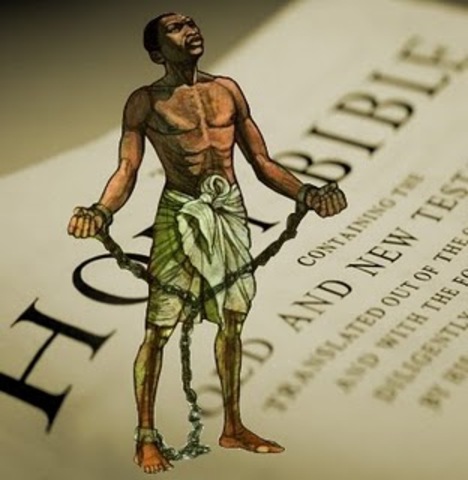Civil Disagreements and The Powers That Be

Question & Answer
Ann Kish from Indiana, writes:
Question:
A friend recently quoted 1 Peter 2:18-20 as her response to how to live in a country with civil disagreements. This concerns me as I have read about the role of the Confessing Church in WWII and believe that Christians are too often ignorant of political concerns and their role in defending the oppressed. How should we read this verse? Does it condone slavery or domestic abuse or being subservient in an undemocratic regime? What is the original context we should consider?
Answer: By Rev. Mark Sandlin
Hi Ann,
Interesting question(s). Let’s cut right to the chase on verse 18. The word that’s translated as “slaves” is οἰκέτης (oiketēs) which is a masculine noun that very specifically refers to someone who lives in the same house as the person they are under the authority of. It seems to me that that alone makes this very clearly a poor verse to choose if you are trying to make a statement about things of a political/national nature. Frankly, 1 Peter 2:13 would have been much better for making their point.
Back to verse 18. When read through our privileged, 21st century eyes, it’s easy to understand the “masters” to be Christians, but the reality is that when 1 Peter was written (probably around 65 C.E.) Christians were much more likely to be the slaves than the masters. There are also indications that because of their beliefs, Christian slaves may have been somewhat persecuted by their masters.
For me, this is where your friend’s choice of verses gets all the more interesting.
They conveniently stopped just before verse 21, but it seems to me that verse 21 is where 1 Peter’s author starts to reveal what’s really going on. What’s really going on, at least in my opinion, is really crappy theology. Specifically, the concept of redemptive suffering. Seldom is suffering redemptive and if it were, surely humanity would be redeemed by now.
My translation of verse 21 would be something like, “For you have been called to this because Christ also suffered for us leaving us an example that you should follow in his footsteps.”
Even though I find redemptive suffering to be horrible theology, it does seem to be the underpinning that 1 Peter’s author is using to encourage Christian slaves to endure the suffering that they are subjected to under their masters. The larger implication, however, is that you are doing it because you are “following in [Jesus’s] footsteps.”
That’s the interesting part.
Jesus’s suffering on the cross happened because he stood up to the Powers That Be on behalf of all of those that the Powers were abusing. He did it loud enough and consistently enough that the Powers decided that they needed to eliminate him.
That’s what “following in [Jesus’s] footsteps” looks like.
Loudly and consistently confronting the Powers That Be when they are abusing their powers and making people suffer.
I have a feeling that is nowhere close to your friend’s intention in using these verses, but it’s definitively where I end up with them.
~ Rev. Mark Sandlin
This Q&A was originally published on Progressing Spirit – As a member of this online community, you’ll receive insightful weekly essays, access to all of the essay archives (including all of Bishop John Shelby Spong), and answers to your questions in our free weekly Q&A. Click here to see free sample essays.
About the Author
Mark Sandlin is an ordained minister in the Presbyterian Church (USA) from the South. He currently serves at Presbyterian Church of the Covenant. He is a co-founder of The Christian Left. His blog, The God Article, has been named as one of the “Top Ten Christian Blogs.” Mark received The Associated Church Press’ Award of Excellence in 2012. His work has been published on “The Huffington Post,” “Sojourners,” “Time,” “Church World Services,” and even the “Richard Dawkins Foundation.” He’s been featured on PBS’s “Religion & Ethics NewsWeekly” and NPR’s “The Story with Dick Gordon.” Follow Mark on Facebook and Twitter @marksandlin

